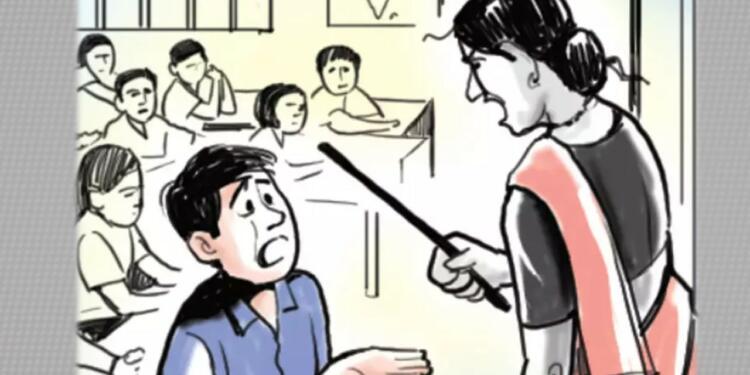The esteemed Bombay High Court Bench at Goa has recently made a momentous ruling, declaring that a teacher’s attempt to rectify a student’s behavior, without any ill-willed purpose, shall not be deemed a criminal transgression. This verdict brings clarity to the legal position on teacher discipline in the wake of the implementation of the Goa Children’s Act in 2003. Previously, some educators have been subject to legal prosecution for claims of the use of corporal punishment in educational institutions.
Justice Bharat P Deshpande observed “If teachers are under fear of such allegations for trivial matters and more specifically while correcting children, it would be difficult for conducting schools thereby giving proper education and more specifically maintaining discipline.”
Factual Background: Ms. Rekha vs. State
A teacher named Rekha Faldessai was convicted by a Goa children’s court in 2019 for violating Section 324 (voluntarily causing hurt) of the Indian Penal Code and various sections of the Goa Children’s Act. However, the high court has overturned the punishment given by the children’s court.
Faldessai’s advocate argued that as a teacher, she had the authority to discipline a student and this action cannot be considered an offense under the IPC or the Goa Children’s Act as there was no intention of wrongdoing. The learned advocate stated that Faldessai was simply trying to correct a student who drank water from another student’s bottle.
Also read: Right to Vote in India is a Stormy Sea of Confusion
Dictum of the High Court: Progressive Verdict on Corporal Punishment in Schools
The court acknowledged the crucial role of teachers in the education system, as they not only impart academic knowledge but also shape students into well-mannered individuals for the future. The court emphasized the importance of a civilized young generation for a civilized society and the need for proper procedures to address cases of corporal punishment in schools.
The Goa Children’s Act is designed to protect children from both physical and psychological abuse, and the court stated that it is the responsibility of the investigating agency, such as the police, to conduct an initial inquiry or direct the complaint to the relevant authority, such as the Directorate of Women and Child Development, in cases of allegations of corporal punishment.
Also read: Parachute Coconut oil is edible oil, just like Sachin Tendulkar is an actor
The public prosecutor argued that while maintaining discipline in school is important, physically abusing a student with a grudge would fall under the provisions of the Goa Children’s Act and the Indian Penal Code. The decision must be based on the circumstances of each case.
The teacher’s advocate argued that using physical force to correct a student without causing harm or insult is not considered an offense under the IPC or the Goa Children’s Act, as long as the intention of teacher is solely to maintain discipline and instill good habits in the student.
Clarification of the Legal Stance on Teacher Correction
The instant case highlights the delicate balance between maintaining discipline in schools and protecting children from abuse. The high court set aside the punishment imposed by the children’s court, recognizing the role of teachers as the backbone of the education system and their responsibility in preparing students to be civilized members of society. The High Court held that the teacher scolding, inflicting reasonable punishments on students is not an offense under Section 324 IPC.
Also read: Mandir independence movement: Constitution is both a facilitator as well as the roadblock
The court acknowledged the fact that the teachers must take care of the students’ overall well-being, balancing the requirements of discipline with an absence of malicious intent. This landmark decision lays out a progressive approach to the role of educators in society. It will help in recognizing the significance of providing students not just with an academic education, but also with life skills that will mold them into well-behaved individuals. Further, with this verdict, the court has set a clear standard for the education system, highlighting the importance of teacher discipline in shaping the future of society.
Support TFI:
Support us to strengthen the ‘Right’ ideology of cultural nationalism by purchasing the best quality garments from TFI-STORE.COM
Also Watch:
https://www.youtube.com/watch?v=93c80rQNAXg




























